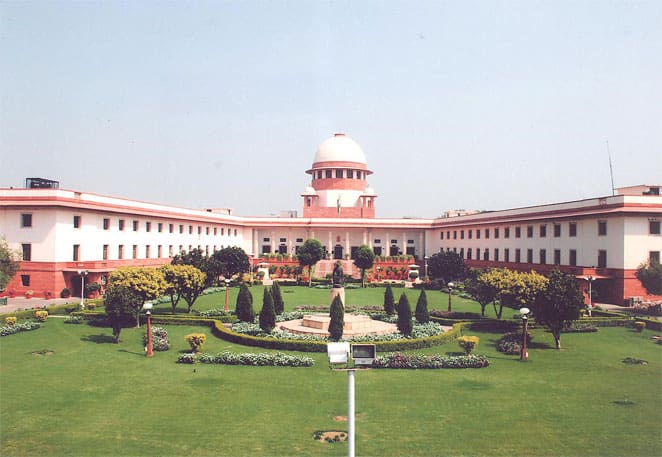New Delhi: The Supreme Court on Tuesday said that it was the obligation of the State that crimes involving vigilante groups are prevented, saying self-appointed vigilantes can’t be allowed to take law in their hands.
Chief Justice Dipak Misra, Justice A.M. Khanwilkar and Justice D.Y. Chandrachud reminded the Centre and State governments of their responsibility to curb violence by vigilante groups.
The court said this while hearing of batch of petitions including one by social activist Tehseen S. Poonawalla and Tushar Gandhi, great grandson of Mahatma Gandhi, seeking to curb violence by cow vigilante groups.
Tushar Gandhi had also filed a contempt plea on some States, accusing them of not enforcing the earlier orders of the court.
The court said that violence by any vigilante group had to be curbed after its attention was drawn to the violence in Maharashtra in which five people were killed in mob violence in the wake of social media posts on alleged child lifters.
Reserving the order, the court gave all the parties three days time to submit their written submission with suggested guidelines to deal with such violence.
Appearing for Tushar Gandhi, senior counsel Indira Jaisinh told the court that despite its order to appoint nodal officers to prevent such incidents, there was an incident of mob lynching near the national capital.
She told the court that the purpose of moving the contempt plea was not to punish someone but for the effective enforcement of its orders by the state governments.
“Unlike other crimes, this crime (by vigilante group) has a pattern and motive and the question is whether State is acting or not,” Jaising said.
Article 256 of the Constitution, which spells the obligation of States and the Union, provides that the Centre could give necessary directions to the States in a given situation.
Additional Solicitor General P.S. Narasimha said the Centre could issue advisories to the States as law and order was a State subject.
He said that the concern was of maintaining law and order and the question was implementation of Supreme Court orders by the State governments.
IANS

